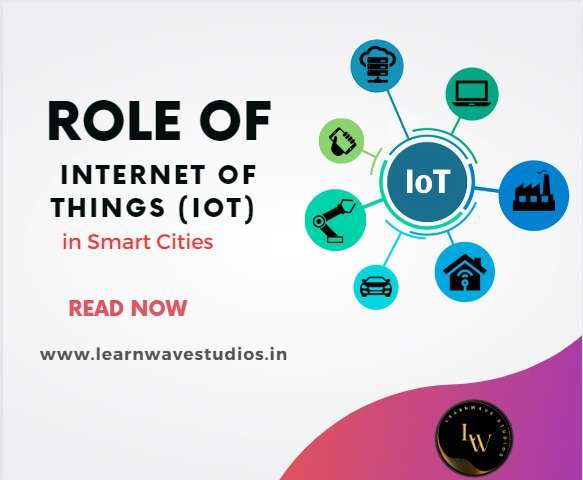The Vital Role of Internet of Things (IoT) in Smart Cities: Top 10 Contributions
As the concept of smart cities continues to gain traction, the integration of Internet of Things (IoT) technology has become increasingly integral to their development. IoT plays a pivotal role in revolutionizing urban landscapes, enhancing efficiency, sustainability, and quality of life. In this article, we will delve into the top 10 roles of internet of things ( IoT ) in smart cities, elucidating how this technology is shaping the cities of the future.

1. Improved Infrastructure Management: IoT facilitates the seamless monitoring and management of critical infrastructure components such as bridges, roads, and utilities. Connected sensors and devices gather real-time data, enabling proactive maintenance and efficient resource allocation to enhance overall infrastructure resilience.
2. Enhanced Public Safety: IoT-enabled smart cities leverage advanced surveillance systems, connected cameras, and sensors to monitor public spaces and detect emergencies in real-time. This contributes to improved safety, rapid response to incidents, and enhanced overall security within urban environments.
3. Efficient Waste Management: The integration of IoT technology in smart cities revolutionizes waste management through smart bins and sensor-equipped containers. These IoT-driven solutions optimize waste collection routes, minimize environmental impact, and streamline the overall waste management process.
4. Sustainable Energy Management: IoT plays a crucial role in enabling intelligent energy management within smart cities. Through connected devices and energy monitoring solutions, cities can optimize energy consumption, integrate renewable energy sources, and drive sustainability initiatives for a more eco-friendly urban landscape.
5. Traffic and Transportation Optimization: IoT-powered traffic management systems, connected streetlights, and intelligent transportation solutions enhance traffic flow, reduce congestion, and improve public transportation efficiency. This contributes to reduced commute times and a more seamless urban mobility experience.
6. Environmental Monitoring and Air Quality: IoT sensors and devices are instrumental in monitoring environmental parameters and air quality in smart cities. This data facilitates informed decision-making to address pollution, mitigate environmental risks, and promote a healthier urban environment for residents.
7. Urban Planning and Development: IoT empowers urban planners with real-time data on population density, public space usage, and infrastructure demand, aiding in informed and sustainable urban development. This contributes to the creation of intelligent, people-centered urban spaces that cater to the evolving needs of residents.
8. Smart Building Management: IoT technology enables smart buildings to optimize energy consumption, enhance occupant comfort, and improve overall building performance. Smart sensors and automation contribute to sustainable and efficient building management within smart cities.
9. Seamless Public Services Delivery: Connected IoT devices and smart city platforms streamline the delivery of public services, allowing for improved citizen engagement, efficient resource allocation, and responsive governance within urban environments.
10. Community Engagement and Participation: IoT facilitates smart city initiatives to engage and involve residents in urban development and decision-making processes. Through connected devices and platforms, citizens can actively contribute to building a more inclusive and livable urban community.
In conclusion, the multifaceted role of Internet of Things (IoT) in smart cities encompasses a wide array of contributions that are redefining urban living. From enhanced infrastructure management to sustainable energy solutions and improved public services, internet of things (IoT) technology is shaping the cities of tomorrow and driving positive change for residents and communities. As smart cities continue to evolve, the transformative impact of internet of things (IoT) will remain at the forefront of urban innovation, ultimately creating more connected, efficient, and sustainable urban environments.
This article delineates the top 10 roles of internet of things (IoT ) in smart cities, underscoring the pivotal role this technology plays in shaping the future of urban living.

